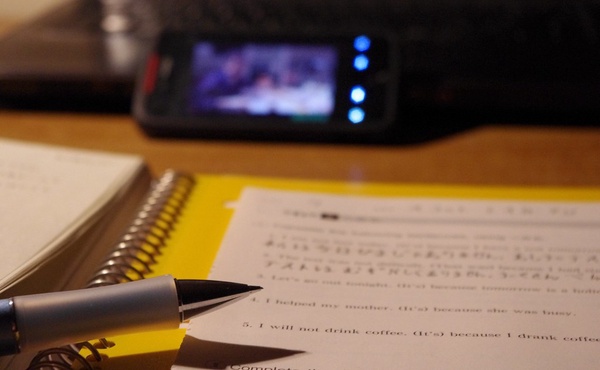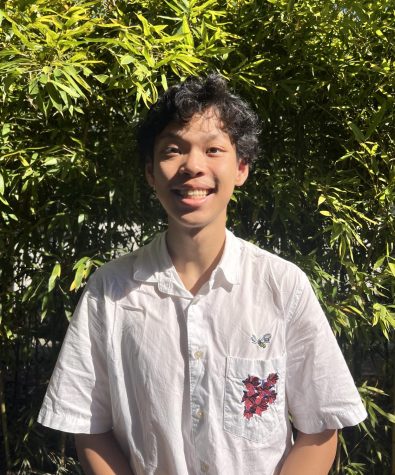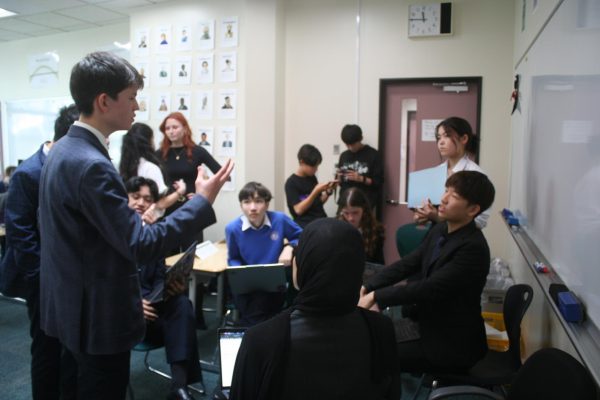The Art of Last-Minute Homework

December 7, 2020
It is currently 1:59 AM. The steady hum of the radiator forms a disturbing harmony with the aggressive whir of an overheating laptop. Harsh, glaring light from the screen illuminates fingers click-clacking desperately on a keyboard. His eyes are even quicker, switching back and forth between mindless sentences being typed, and the word count—slowly but surely rising towards the bare minimum. As the clock strikes 2:00, despair enters the young student’s mind. Another project left for the last minute, miserably being crunched out at the expense of his sleep and sanity. There is no escape except for completion of the assignment: a completion that slips further and further with each lapse in concentration and bobbing of his tired head.
This is a struggle all students inevitably face at some point. Ask a junior or senior how many times they have spent the nights working on a piece of homework, and they will likely answer with a proud double digit, all while swaying with shadows under their eyes. No matter how organized or intelligent, each high-schooler burns the midnight oil.
The obvious solution to this issue is to learn from the horrible experience and to never let it happen again. However, for when it does happen again (which for tenth grader Ryne Hisada has happened a few times: “I have relapsed 7 out of 10 assignments”), proper countermeasures must be set in place to act quickly and decisively. Among high-school students, a number of strategies have been adopted to cope with procrastination and the workload.
“Whenever I get really tired or demotivated, I think of my future,” junior Take Zoot said. “After the initial depression, I feel really driven to work.” Although the initial regret may seem counterproductive, Take uses it to fuel his dreams for a successful life after high school. By holding aspirations beyond the scope of daily homework, a student can work towards achieving a personal goal, which will always be a better motivator than simply desiring to finish the particular assignment.
While this strategy is effective, it requires students to draw determination from a genuine desire for self-improvement, and not merely wallow in self-pity. With only a semester left in his high-school journey, Take’s strategy continues to help him overcome daily obstacles and meet his future confidently. Even for the freshmen and sophomores, it is not too early to establish an inspirational future target and work towards it.
Another student has quite a unique solution for his work. Sophomore Joey Schulz explains: “I’ll wake up before school to finish it, because I believe in good sleep over anything else.” According to Healthy Sleep, sleep-deprived individuals “cannot focus attention optimally and therefore cannot learn efficiently.” However, the key impact that results from a lack of rest is how it interrupts “the consolidation of memory, which is essential for learning new information.”
Even though good grades may seem like the overarching purpose for high-school students occasionally, we must remember that our mental and physical health must be maintained in order to achieve academic success. By sleeping first, Joey guarantees a healthy body and mind; adequate sleep helps him with the necessary brainpower for learning new content.
Although the creative and stimulating assignments at ASIJ provide students with extended opportunities to learn, the side effects of a tremendous workload and a packed schedule are often antithetical to a healthy school experience. Considering the numerous extracurriculars offered alongside exhausting classes, a student’s daily life may become even more tiring. While some individuals might give up, the tactics of ASIJ high schoolers showcase the dedication they hold towards their work.
While a steady work ethic is an admirable trait, it is crucial to remember that “working last-minute” should not be routine, but a last option, used only when unavoidable. Because procrastination takes a toll, students should avoid putting themselves in that position. We need to aim to be ahead, not behind. As sophomore Miyu Schrepfer suggests, “Always try to finish and hand in your work early―any grade is better than an Insufficient.”




















Kazu • Apr 30, 2021 at 2:51 PM
Reading this article helped me get a better idea of completing homework. As my year started off with hybrid learning, it was hard for me to balance completing my homework. After reading this, I might try and use some of the tips mentioned to help me complete school work.
Toby • Apr 29, 2021 at 2:53 PM
It was a very interesting article to read as a freshman whose first year was a mix between online and on-campus learning. Nice tips for the younger high school and I may try some that were written in the article.